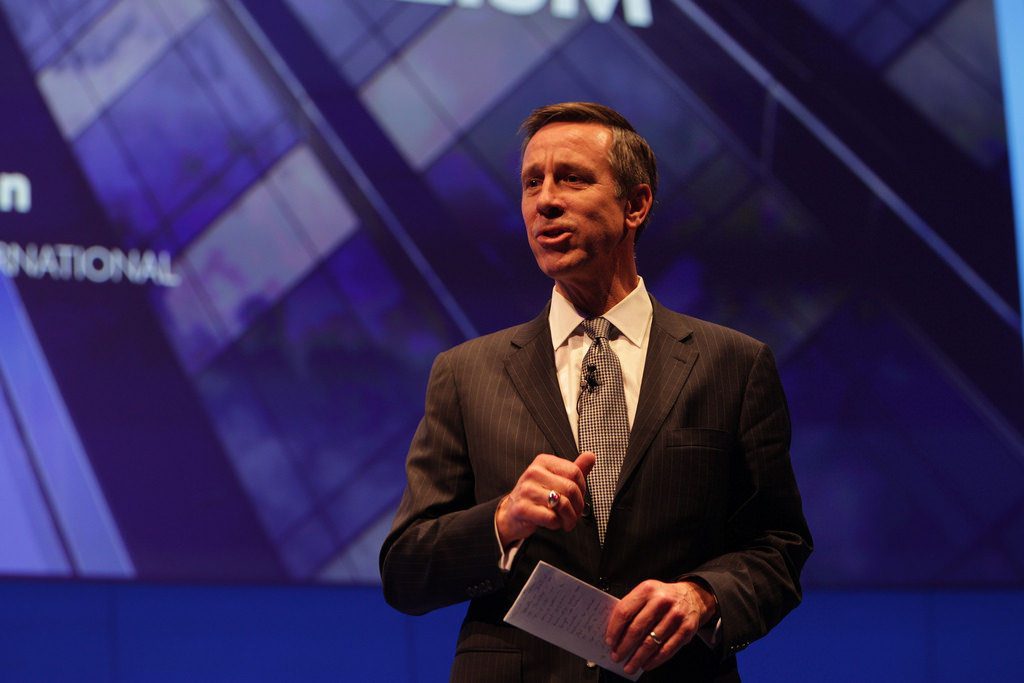Skift Take
For an industry that's historically averse to conflict, Sorenson's advice may be hard to put into action. But the industry will be complacent at its own peril.
Marriott International CEO Arne Sorenson hasn’t held back his opinions on the wave of anti-globalization and populist sentiments washing over the U.S. and Europe during the past year. This week he laid out two root causes of these attitudes and how the travel industry can respond with more than just words.
From the Brexit vote to the U.S. presidential election to a number of upcoming elections in Europe, Sorenson said he sees two primary concerns for the travel industry. “One, travelers are frightened,” he said while speaking at the World Travel & Tourism Council Global Summit in Bangkok on April 26. “Terrorism and safety are concerns and they’re real concerns and legitimate concerns.
“And number two, they are confused and maybe angry about immigration,” he said. “Confused in the sense that they don’t know what the rules are. Don’t know what the limits are to immigration. Don’t know who’s setting those rules and what the impacts are.”
Listening to why travelers are concerned about globalization and security — as many travelers are also voters — is an area where the travel industry can’t shy away from, he said. “We’re now derided by many as globalists,” said Sorenson. “Somehow voices that are not sufficiently patriotic today as they’ve been in the last number of decades.”
“We don’t respond adequately, in my opinion, by ignoring those voices,” said Sorenson. “We have to listen to those voices and what they’re telling us.”
Travel Industry Can Help Governments With Immigration Issue
Sorenson admitted to “at times being despondent about the threats that we face today,” but said each politician in every country should know it’s in their best interest to grow travel and tourism and not let these issues deter that.
To combat fear and confusion, actions will speak louder to travelers than words, said Sorenson, in helping countries address immigration, one of the leading factors that influenced voters in the U.S. and UK during the past year.
“We need to make sure that the travel industry’s data helps nations deal with the immigration issue,” he said. “And of course, the other thing we can do around immigration is work to create a consensus in whatever country we’re from, a political consensus about what are the limits of immigration, what are the rules and how is it going to work?”
A global trusted traveler program is a solution the travel industry should move towards, said Sorenson. “Maybe today because of this threat we have an extraordinary opportunity to build a global trusted traveler program where we actually enhance security by sharing data more effectively between governments and between the industry and government,” he said.
Such a program would likely be voluntary and require a handful of pilot countries to determine how to not focus on the 99.9 percent of travelers who pose zero risk, he said.
Sorenson is one to understand how globalization impacts business and people in general. He said many of Marriott’s big hotels are essentially microcosms of the United Nations. Some hotels have 50 or 60 nationalities represented among their staff, he said.
With about 675,000 employees worldwide at Marriott International, which Sorenson said come from every country in the world, much of Sorenson’s job is listening to the voices of his employees and the emerging and ongoing trends they observe at their properties.
For the world to be ready for 1.8 billion international travelers per year within the next decade, travel industry employees from the front desk and up will need to disrupt the status quo and work together to erect smart or digital bridges, not outdated walls, Sorenson recently wrote.
Have a confidential tip for Skift? Get in touch
Tags: brexit, marriott, tourism, wttc
Photo credit: Travelers' voices cannot be ignored, said Marriott CEO Arne Sorenson this week. Pictured is Sorenson speaking at the World Travel & Tourism Council Global Summit in Bangkok on April 26. World Travel & Tourism Council / Flickr
